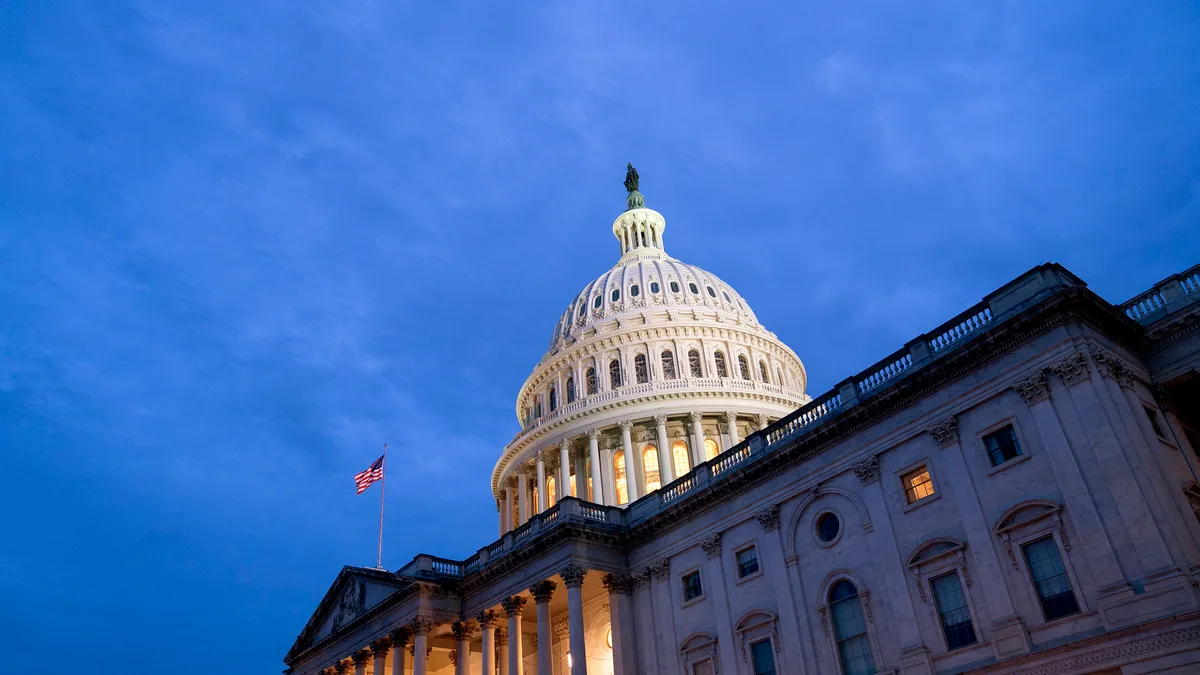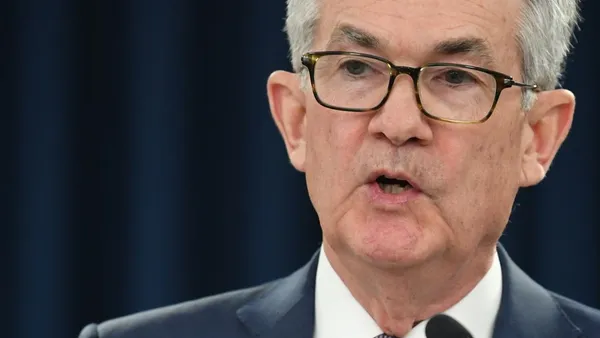Dive Brief:
- Failure by Congress to raise the Treasury debt limit would prompt a spike in corporate borrowing costs, wipe out $15 trillion in wealth and push up jobless rolls by 6 million, Moody’s Analytics said, as a partisan standoff over the debt ceiling persists despite the prospect of a U.S. government default next month.
- “A default would be a catastrophic blow to the nascent economic recovery from the COVID-19 pandemic,” Moody’s Analytics Chief Economist Mark Zandi said. “Global financial markets would be upended, and even if resolved quickly, Americans would pay for this default for generations, as global investors would rightly believe that the federal government’s finances have been politicized.”
- Default would compel global investors in Treasury bonds to demand higher interest rates, worsening U.S fiscal challenges and slowing economic growth, Moody’s Analytics said. Stock prices would fall by almost one-third, short-term funding markets would shut down and interest rates for corporate borrowing, mortgages and consumer loans would surge.
Dive Insight:
The Treasury has been unable to borrow money since Aug. 1 and the reinstatement of a limit on U.S. debt required by law. The Treasury has paid U.S. bills by using available cash. Such funds may run out on Oct. 20, when the Treasury makes a payment to Social Security recipients exceeding $20 billion, Moody’s Analytics said.
Senate Minority Leader Mitch McConnell (R-Ky.) and other Republicans have refused to back an increase in the debt limit, saying it would enable still more excessive spending by Democrats. Congress is considering a Biden administration proposal to spend $3.5 trillion to combat climate change and expand federal programs in healthcare, education, child care and other social services.
“My advice to this Democratic government, the House and the Senate: Don’t play Russian roulette with our economy,” McConnell said Wednesday at a press conference. “Step up and raise the debt ceiling to cover all that you’ve been engaged in all year long.”
Democrats say the Republicans have an obligation to vote for raising the debt limit, noting that the national debt rose by nearly $8 trillion when Republicans controlled both chambers of Congress during the Trump administration.
“Republicans racked trillions of dollars of debt under Trump and are now demanding American families bear the consequences of default,” Senate Majority Leader Chuck Schumer (D-N.Y.) said yesterday. “This is nothing short of a dine-and-dash of historic proportions.”
Throughout the debt limit standoff, leadership from both parties have agreed that a U.S. default — the first in history — would be catastrophic.
“A delay that calls into question the federal government's ability to meet all its obligations would likely cause irreparable damage to the U.S. economy and global financial markets,” Treasury Secretary Janet Yellen said in a Sept. 8 letter to congressional leadership of both parties.
“At a time when American families, communities, and businesses are still suffering from the effects of the ongoing global pandemic, it would be particularly irresponsible to put the full faith and credit of the United States at risk,” Yellen said.
Budget battles between the Obama administration and the Republican-controlled Congress in 2011 and 2013 provoked an uncertainty that inhibited business investment and hiring and slowed economic growth, Moody’s Analytics said.
Without the partisan wrangling, by mid-2015, gross domestic product would have been 1% higher and the jobless rate would have been 0.7% lower, with 1.2 million more workers employed, Moody’s said.
Political uncertainty “is sure to increase in coming days, making businesses more reluctant to invest and hire, entrepreneurs less likely to start companies and financial institutions circumspect about extending credit,” Moody’s Analytics said.















